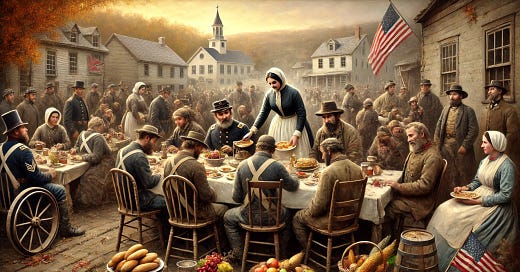“In every thing give thanks: for this is the will of God concerning you.” I Thess. 5:18
In November 1863, in the midst of the Civil War’s brutal devastation, President Abraham Lincoln issued a proclamation establishing Thanksgiving as a national holiday.
We usually think of “giving thanks to God” during good times. When Lincoln issued his proclamation, however, the nation was in a very dark time. 1863 was the middle of what became known as America’s Civil War (1861-1865). The war was anything but civil. Over 600,000 Americans would perish in the conflict.
In that climate, the first national Thanksgiving Day began the American annual holiday when Americans are asked to “give thanks to God,” displaying the power of gratitude in grief.
One little known story from 1863 stands out as an illustration of how “Thanksgiving” is a choice that must be made, and when it is, a beacon of hope shines in the darkness.
In Gettysburg, Pennsylvania, a town ravaged by the war’s most infamous battle just mo…
Keep reading with a 7-day free trial
Subscribe to Wade Burleson at Istoria to keep reading this post and get 7 days of free access to the full post archives.





